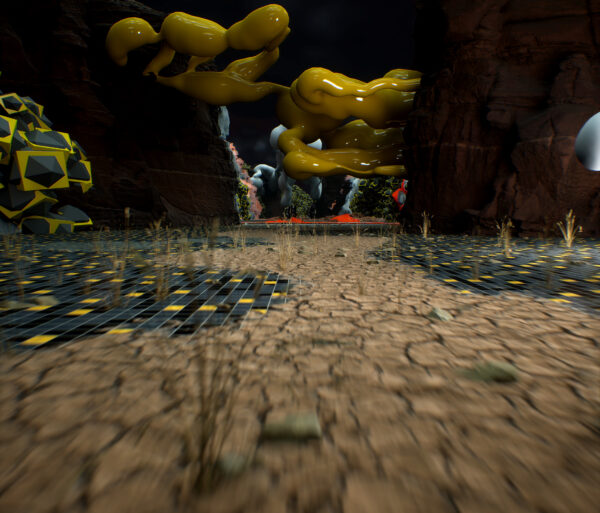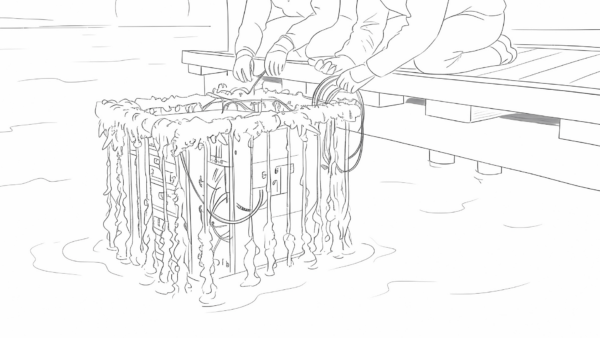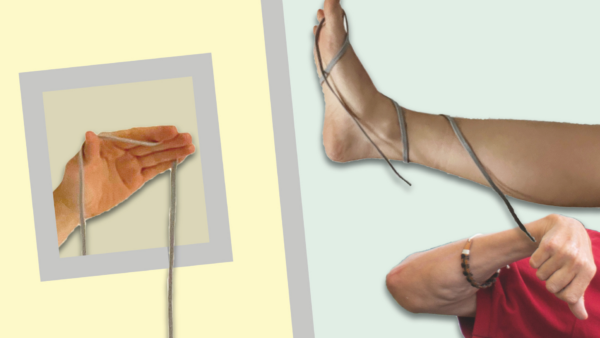

Visitation committee positive about functioning of national culture funds
Tasked by the Ministry of Education, Culture and Science, a visitation committee evaluates the policy and day-to-day practice of the six national culture funds every four years. The evaluation of the past years took place in 2023. For the evaluation, the committee received a number of studies from the funds, including self-evaluations and applicant and stakeholder surveys. In September, the committee spoke with some of our staff and advisory committee members, with executive director Syb Groeneveld, and representatives of the Supervisory Board.
The visitation committee notes that in recent years the national culture funds have shown themselves to be agile and resilient, serving their individual sectors well. Chair of the visitation committee Andree van Es had this to say: ‘The commitment with which the funds have served the arts field, applicants and society during and after the Covid years can be described as tremendous. They are an indispensable link, whose strength is largely derived from expertise and commitment to the various arts disciplines and which has played a positive role in the sector.’
The committee also mentions the value of the differences between the national culture funds: ‘The usefulness of the current strategic and operational collaboration exists thanks to the differences between them: the intricate network in the capillaries of many sectors, the specialist knowledge, strong international positions and clear checks and balances per sector. The cultural funds represent unity through diversity.’
The committee also discusses the functioning of the individual funds in the report. The committee sees that the design sector in which the Fund operates occupies an increasingly solid position in the Netherlands, being involved in the major transition tasks and growing in size and professionalism. It is positive about the stakeholder management the Fund employs. Executive director Syb Groeneveld: ‘The visitation is a welcome method to look back at what the Fund has been doing in recent years, what has changed and what could be improved. I found the discussions with the committee and the stakeholders and the results from the appreciation survey very valuable. It has taken us further in every way to give additional direction to our policy for the coming years.’
We highlight the main points from the visitation report (in Dutch):

growth of organization
Like the other national culture funds, the Fund has grown significantly in size in recent years. Partly due to the Covid pandemic and the supporting measures, the number of applications increased by about 40%. The Fund’s budget and the number of staff also grew. The committee finds that the funds have functioned appropriately during this turbulent time and have also managed to implement the necessary organizational change and further professionalization.
The committee is positive about the tight workflow employed by the Fund and the revamped assessment system it introduced. This makes assessment more efficient and consistent. At the same time, the committee stresses that the Fund’s growth poses challenges for its internal organization. To deal with them, we are starting an organizational consultancy programme in 2024, among other things.
impact instruments
Since 2021, the Fund has intensified working with impact within the organization. The visitation committee compliments the Fund on the professionalism of the impact methodology employed, which focuses on gaining insight in order to improve grant schemes and procedures, enhance accountability and adjust policy. The impact policy will be further developed in the coming years so that the results of supported projects become even more transparent.
diversity and inclusion
In the area of diversity and inclusion, the committee believes there is still room for improvement, also because the Fund fulfils an exemplary role towards the sector. The Fund has worked in recent years to make advisory committees and staff more diverse, and the working group also develops annual plans to embed and propagate diversity and inclusion well, internally and externally. Subscribing to and applying the Diversity and Inclusion Code became a condition for receiving a grant, and we introduced alternative ways to submit an application. Diversity and inclusion remains an important focal point for the Fund.
applicants survey
The visitation report includes recommendations that the Fund will work on in the coming period. The appreciation survey commissioned by the Fund in 2023 also provides valuable information in that respect. This survey shows an increase in the appreciation of our service over the years 2021 and 2022. Three quarters of applicants are satisfied with the application process and positive about the revamped website. In general, applicants are positive about the implementation of the Fund’s policy, especially the extent to which the Fund encourages experimentation, research and talent development.
Of the small proportion of applicants less satisfied with the service (7%), most of them had their applications rejected. In particular, they expressed a need for clearer feedback after rejection. Generally, applicants find that preparing an application is very time-consuming. Making the application process easier – for applicants, but also for staff and advisory committee members – is one of the Fund’s focal points for the coming policy period. Read the full appreciation survey and the analysis of the stakeholder survey (both texts in Dutch).
about the visitation committee
The visitation committee consisted of Andree van Es (chair), Saniye Çelik, Ann Overbergh, Ryclef Rienstra, Janwillem Schrofer, Geert van der Veen and Maike Olij (secretary). The visitation committee’s report was presented on 11 January to Barbera Wolfensberger, director general of Culture and Media at the Ministry of Education, Culture and Science. Read the full visitation report (in Dutch).
The Fund is currently working on the 2025-2028 policy plan. Recommendations from the visitation committee are being incorporated into the plans where possible. We expect to publish the new policy plan in February.







